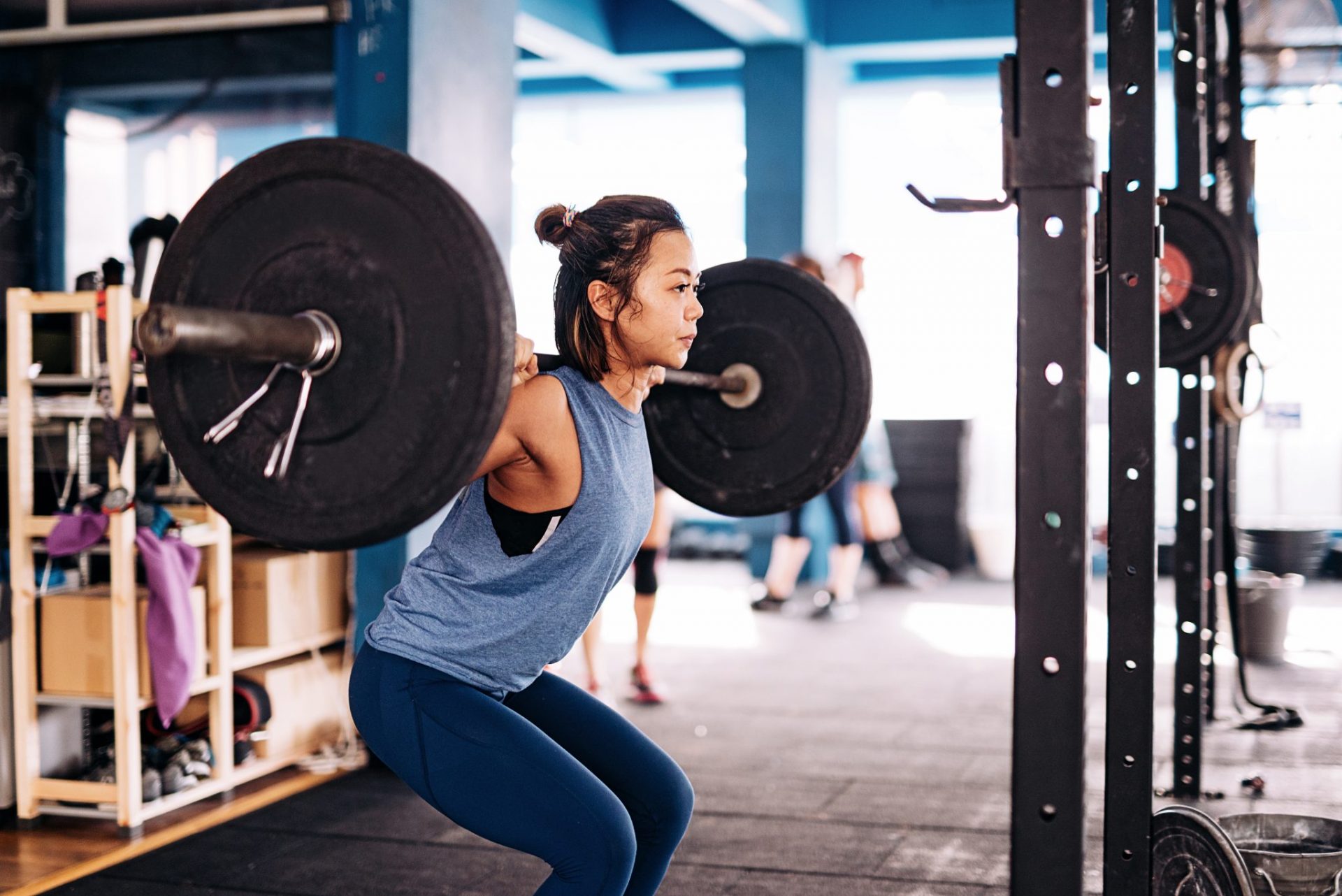How long does it take to get stronger from strength training?
Exercising to get fit is all very well and good, but when it comes to strength training, most of us want to know when we’ll start to notice results. How long does it take to get stronger from lifting weights and what kinds of changes might we notice?
However you like to exercise, having a goal in place can help you to make it into a habit. With strength training, most of us are trying to get stronger, to build lean muscle mass and maybe to bulletproof our body from injury.
But whether you’re looking to build stronger glutes to avoid knee pain from running, or you want to carve strong, shapely shoulders, knowing how long it might take to start reaping the benefits of lifting weights is key to sticking with the programme. There’s nothing like the feeling that you’re getting nowhere in your training to put you off making it into a life-long commitment. So, just how long does it take to see results from weight lifting?
We asked personal trainers Alice Miller,Tess Glynne-Jones and Caroline Bragg to share their tips on setting goals in-line with progress speed.
You may also like
Can you train to run faster with strength training alone?
How long does it take to see results from strength training?
TESS GLYNNE-JONES
“A lot of people might see some kind of results in about two weeks, but to see the results they really want often takes around 12 weeks. Our bodies don’t change overnight, it takes a lot of consistency if you want to create sustainable results.”
ALICE MILLER
“It depends how often people train. After about four weeks, you’ll see a slight change, and between eight to 12 weeks you’ll start seeing serious results in strength and muscle.”
CAROLINE BRAGG
“You need to think about your nutrition, your sleep, your consistency, but if all of those are working with you, you will start to notice differences in your posture, and the way you feel within your body, within the first four weeks.
“Maybe they won’t be visible to the naked eye, but you will be able to feel it as long as you’re consistent.”

How long does it take to start lifting heavier weights?
TESS GLYNNE-JONES
“Each week you’re going to be adding weight to your movements, so you’ll be making little progresses every single week. But if you’re trying to get a personal best with your deadlift, for example, then you need at least four weeks, and you’d have to be training consistently for it.
“It’s all about creating progressive overload – that means you’re overloading your muscles a little bit more every week. But I just think in order to see really strong results, I’d still say at least eight weeks.”
ALICE MILLER
“It depends what your goal is. If it’s strength, and if you feel like a weight is getting easier and you’re not feeling fatigued near the end of the set, you can go up a weight if your form is good. If you’re going quite heavy across your sessions, then stay at that weight for about a month, and then shock your body by challenging it with a heaver weight for the next bunch of sessions.”
CAROLINE BRAGG
“It all works with your hormones, as well. There are times in the month where it’s safer to stay within a weight that you’re comfortable with, like in the second two weeks of your cycle. But in your first two weeks every session you might want to try even just a kilo heavier. That two-week period is when we tend to have better results.”
You may also like
Strength training: how many sets and reps should you do to get stronger and build muscle?
How do I build up my strength?
TESS GLYNNE-JONES
“For someone who’s never done a press up before, they’re not just going to get it in a week – they need to create that strength. And it takes a while for a muscle to develop more strength; it doesn’t just happen overnight.
“You’ve still got to be chasing it quite hard. You need to be focussing on the press up for eight weeks in order to try and get it.”
ALICE MILLER
“Look at it as a cycle: say you’re lifting 10 kilos and the last week of training feels good. The next week see if you can do 12 kilos. That’s how your body changes. If you’re grabbing the same weight every time, people don’t tend to see results, or they’ll be really slow results.
“So, you do need to shock the body with a heavier weight, or a change in rep scheme, that kind of thing.”
Follow @StrongWomenUK on Instagram for the latest workouts, delicious recipes and motivation from your favourite fitness experts.
Source: Read Full Article


